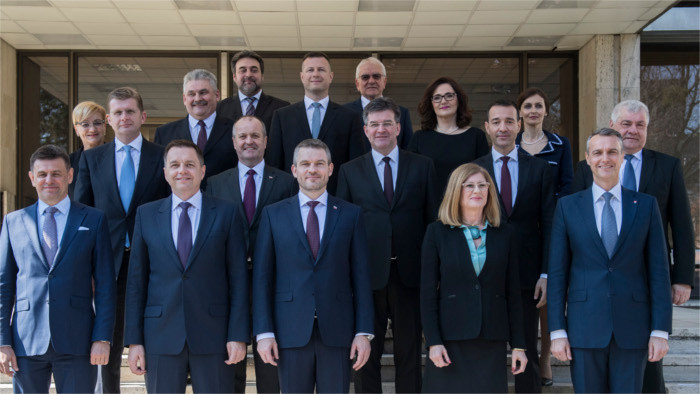The new Slovak Government has five new ministers. Two of them are former Health Ministers. Tomas Drucker (a Smer-SD nominee) has moved from Health to the Interior despite having no prior experience in this area. He did not have any experience in healthcare either but took that job in 2016 as a "crisis manager". Drucker called on all police officers not to be afraid of applying the law and to oppose any attempts by anybody to put pressure on them to do otherwise.
"I am prepared to deal resolutely with personnel issues, including that of Police Corps President Tibor Gašpar but first I want to talk to him. I also want to launch legislative change for the manner in which the police corps president and head of the police internal affairs inspection team are elected and dismissed," he said.
At the Health Ministry, Drucker is replaced by his deputy Andrea Kalavská (a Smer-SD nominee) who wants to continue the projects they worked on. The Chamber of Nurses and the Association of GPs strongly opposed her appointment. A doctor herself, Kalavská replied that she accepts the post with humility and wants to contribute to improving the health care sector. "I care about the fact that when I return to the hospital in a few years or months my colleagues won't criticise me, that they will have better working conditions and that patients in extreme life situations can experience some slight improvement," she said.
The dismissal of Special Prosecutor Dusan Kováčik, as requested by people at the recent rallies, is not the hottest issue at the moment, stated the new justice minister Gábor Gál (Most-Hid) after meeting President Andrej Kiska on Wednesday. They spoke about more stringent criteria for future constitutional judges as well as about speeding up court proceedings. A lawyer by profession, Gál also said that he might return to the issue of decriminalising drugs in certain cases that was proposed by his predecessor Lucia Žitňanská (Most-Hid).
Richard Raši (Smer-SD) is confident that in the post of Vice-premier for Investments and Informatisation he will be able to offer a perspective on informatisation from the other side - as an end consumer using the service. A doctor by profession with no prior experience in informatisation and a former Health Minister, too, Raši has divided his new agenda into three spheres: European Funds, investments and informatisation. His top priorities are transparency, streamlining processes, cutting red tape and also recovering the public's lost trust concerning European Funds. In the area of investments, Raši believes that it is important to draft a strategy that should encompass projects with a 10-15 year outlook for the future.
Culture minister nominee Ľubica Laššáková (Smer-SD) sees no reason to head the ministry differently from her predecessor Marek Maďarič (Smer-SD). Regarding the issue of licence fees, Laššáková said that they were needed as a source for funding public-service Radio and Television Slovakia (RTVS). She added that discussing hikes in the licence fee would be premature, however. At the same time the culture minister candidate apologised for her recent statements about the American billionaire George Soros and his influence with regards to the organisation of mass public rallies in Slovakia following the murder of journalist Ján Kuciak and his girlfriend.


